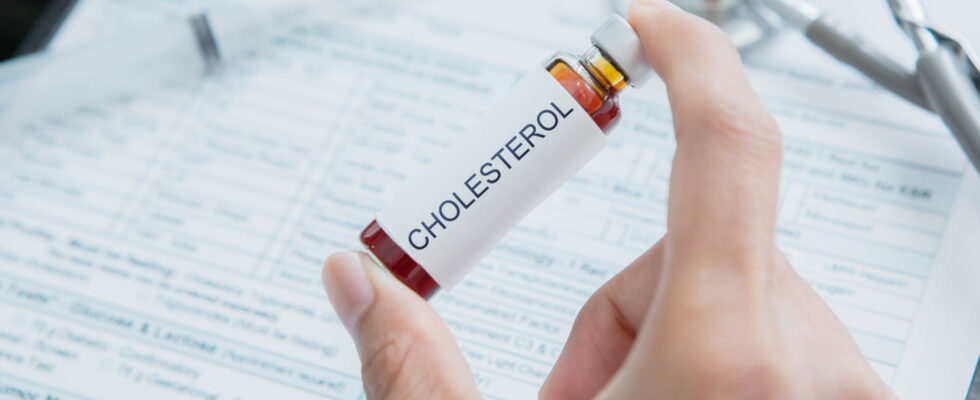“Without risk factors, we can tolerate a slightly higher rate,” says our cardiologist.
In excess, cholesterol (of course, the “bad” or “LDL cholesterol” that is found mainly in the blood) increases cardiovascular risk. Too high a level promotes the formation of atheromatous plaques mainly composed of fat on the walls of the arteries, obstructing the passage of blood and potentially leading, in the long term, to a heart attack or a stroke. The standards for bad cholesterol levels vary for each of us, in particular depending on the patient’s profile and their associated risk factors (diabetes, hypertension, smoking, etc.).Over the years, cholesterol in the blood gradually increases, until about age 65. From age 65, cholesterol levels decrease a little bit. (a phenomenon probably linked to an alteration in the composition of some of its lipid fractions, editor’s note), Professor Gérard Helft, cardiologist and President of the French Federation of Cardiology (FFC), tells us. The problem is that there is no “age-by-age” target value that people can refer to.“. For information, between 55 and 64 years old, the average bad cholesterol level in France is 1.35 g/L.
► Without risk factors, we can tolerate a slightly higher LDL cholesterol level, says our expert without defining a maximum figure”since we will act on a case-by-case basis. For example, we will be a little more tolerant for an active woman who has no risk factors than for a diabetic and smoking man.“.
► With risk factors (diabetes, hypertension, overweight, smoking, etc.) or family history, the LDL cholesterol level must be less than 1 g/L or 1.3 g/L depending on the case.
► If you have already had a cardiovascular problem (stroke, heart attack, etc.), the “target” value for LDL cholesterol is much lower: “Have a rate lower than 0.55 g/L“, says our interlocutor.
From the age of 40, it is recommended to measure your cholesterol as part of a lipid profile carried out in a laboratory. It also allows you to check that there is no increase in triglycerides, often associated with an increase in the level of bad cholesterol. The blood test must be carried out on an empty stomach. This means not eating or drinking anything (except water) for 12 hours beforehand. Depending on the results, your doctor or cardiologist may advise you to change your lifestyle to naturally rebalance your cholesterol, prescribe additional tests or consider treatment.
